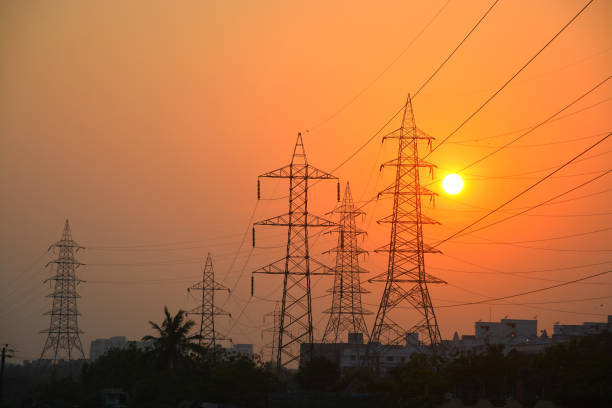In a recent order, the Maharashtra Electricity Regulatory Commission (MERC) allowed for contract demand revisions up to two times for high-tension (HT) commercial and industrial (C&I) consumers and once for low-tension (LT) C&I consumers in a billing cycle up to 31 March 2022.
Kalika Steel Alloys and 27 other companies had petitioned the Commission, requesting that the contract be revised. They sought an extension of the Commission's earlier order, which allowed for multiple revisions of the contract demand in light of the disruption caused by the Covid-19 pandemic.
In an earlier order, the Commission granted relief from monthly contract demand revisions, which was later extended until 31 March 2021. Contract demand is the amount of electricity (kW) that a customer requests from a distribution company (discom) over a specific time period.
The petitioners claimed that they had carried out their operations in such a way that the Maharashtra State Electricity Distribution Company Limited's (MSEDCL) operations had not been put under undue stress over the last nine months.
In their submissions, the petitioners stated that they believe the economic situation will not improve for some time due to the magnitude of the Covid-19 crisis. They acknowledged that they were in a severe financial bind, as the cost of electricity accounted for roughly 60% of their total cost of production.
MSEDCL added in its response that the Commission's earlier order was due to the difficulties faced by the industries as a result of lower demand. The current situation was different because demand had returned to normal.
The discom also stated that only a small number of consumers had taken advantage of the Commission's benefits. As a result, the difficulties cited by the petitioners did not affect the vast majority of Maharashtra consumers.
However, Adani Electricity Mumbai Limited responded that the entire country, as well as Maharashtra, was currently reeling from the second wave of the Covid-19 pandemic and that the lockdown had resulted in the closure of most non-essential establishments.
Taking these factors into account, the company stated that it had no objections to the Commission's earlier order's extension request, allowing the contract demand to be revised.
Tata Power Corporation expressed similar sentiments and stated that it would follow the Commission's order.
The Commission noted that citing the consequences of the Covid-19 pandemic, the petitioners stated that the economic scenario was unlikely to improve anytime soon, creating uncertainty in business, supply chain planning, and logistics. As a result, they requested permission to extend the provision for multiple revisions in the contract demand until 31 March 2022.
MERC observed that, given the current pandemic situation, consumers required the flexibility to revise their contract demand for a longer period of time. In addition, the number of occasions permitted in previous practice directions needed to be adjusted to account for changed circumstances.
As a result, the Commission determined that it was appropriate to allow contract demand revisions for HT C&I customers on two occasions during a billing month. Similarly, the LT consumer can only change the contract demand once per billing month.
MERC stated that for short-term open access consumers, contract demand revision would be prohibited during the open access period. Furthermore, medium- and long-term open access consumers should apply for a revision in open access permissions commensurate with their intended revised contract demand.
The Commission noted that MSEDCL had raised the provision of net-metering regulations that linked maximum allowable net metering rooftop capacity to consumer contract demand, subject to a higher limit of 1 MW. Because of the change in contract demand, the allowable capacity of net metering had to be reduced accordingly.
The Delhi Electricity Regulatory Commission reduced fixed charges for industrial and non-domestic consumers by 50% in September of last year. The Commission's notification stated that several C&I establishments had not used their contracted capacity during the lockdown period (until 30 May 2020).
Image Source
Also read: Govt urges electricity regulators to issue tariff orders on time
Also read: Power ministry asks regulators to revise tariffs by April 1 each year




















